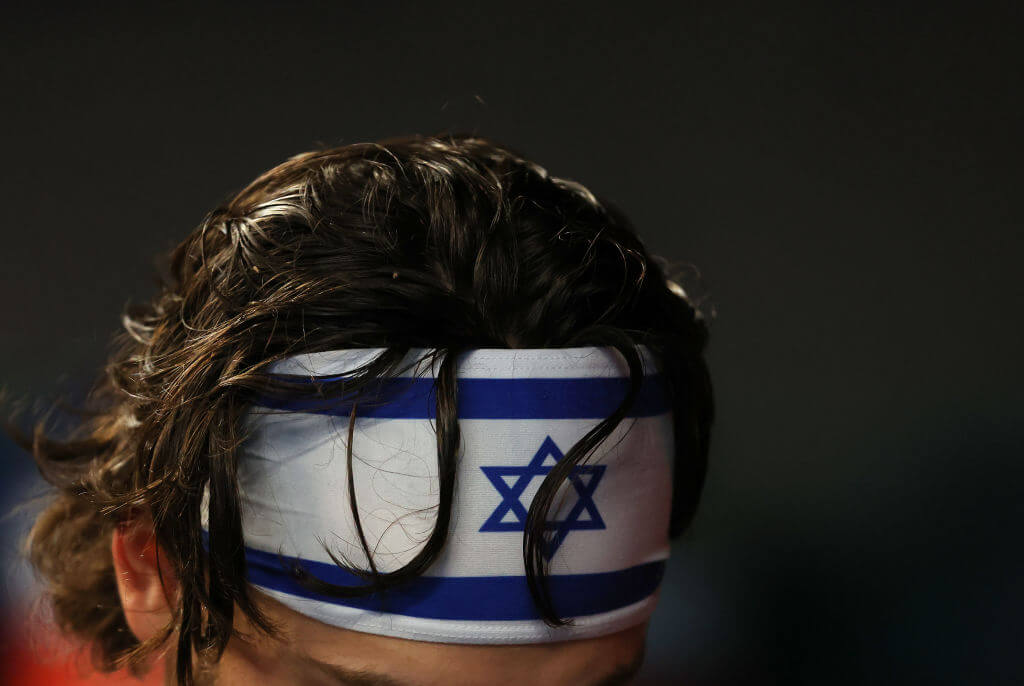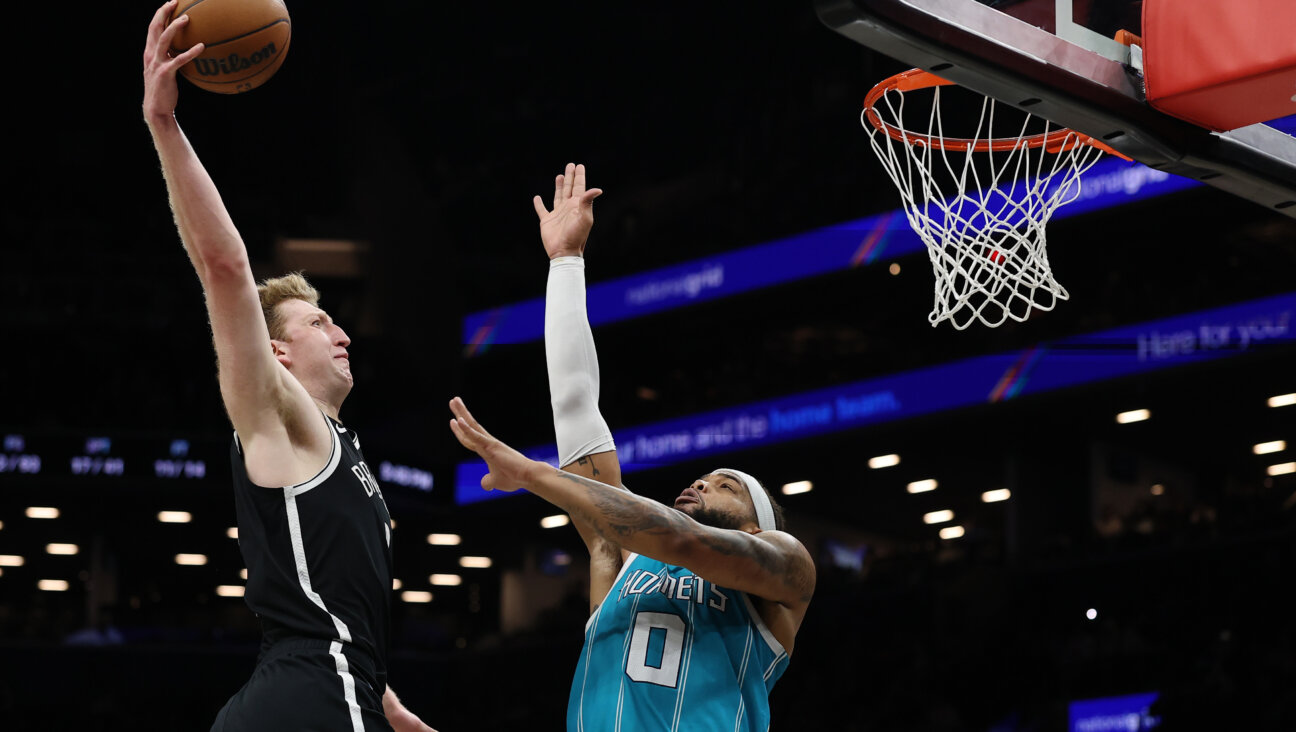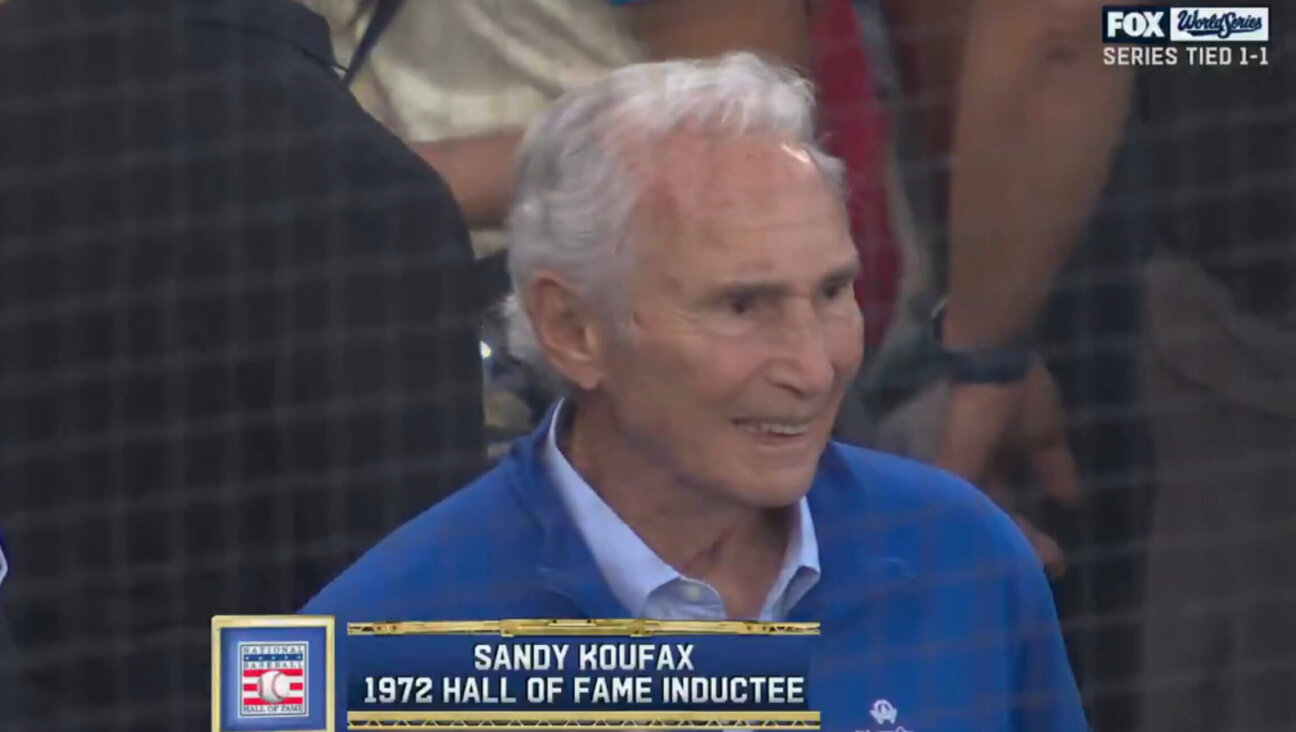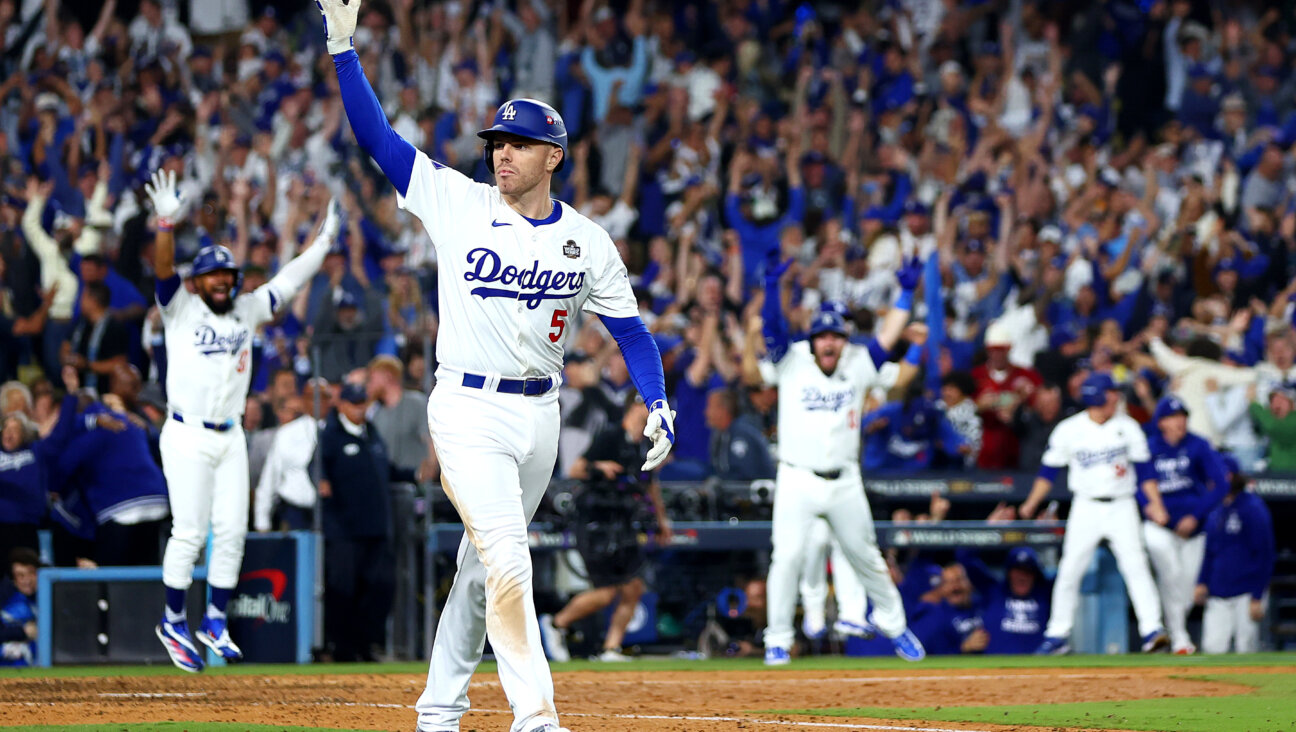On Team Israel, locker room talk turned to politics
It was not lost on any that protests were roiling the country they were representing at the World Baseball Classic

Noah Mendlinger of Team Israel at the World Baseball Classic. Photo by Al Bello/Getty Images
Unlike most national sports teams, the Israeli baseball team has very little connection to the country’s government. The players who competed in this week’s World Baseball Classic were all born in the U.S., and while a few have made aliyah to be able to compete for the Olympics, none of them actually lives in the Holy Land.
But all of them have expressed some connection to Israel, and it was not lost on any that protests were roiling the country as they competed. On the contrary, off-field banter frequently turned to Israeli politics. As the tournament began, hundreds of thousands of Israelis took to the streets to protest a judicial reform plan. Backed by the right-wing governing coalition led by Prime Minister Benjamin Netanyahu, the demonstrators fear it will demolish the country’s system of checks and balances.
Two Israeli natives, Assaf Lowengart and Shlomo Lipetz, players who did not appear on the final roster but who traveled with the team, most often led the discussions on the upheaval. Lowengart admitted that he and Lipetz — who describes himself as “extremely liberal” — saw things differently, but said that the team benefitted from hearing different takes on the crisis.
At a Greek restaurant in West Palm Beach before the tournament began, Lipetz, a veteran of Team Israel who was born in Tel Aviv around the time of the Camp David Accords, gave the team an overview of the situation.
Utility player Noah Mendlinger said Lipetz encouraged the team to ask questions so that they could understand what was going on in the country whose name was emblazoned across their uniforms.
“I think we kind of have a little bit of a blind eye to it,” Mendlinger said. “You’re seeing some things on Twitter that’s definitely been eye-opening in and of itself. Lipetz encouraged us to have some of those tough conversations that we need to have in 2023.”
Players said those conversations were ongoing during the tournament — at batting practice, on the team bus, and as they shagged fly balls before the game. No one view predominated. Some players had taken trips with Birthright Israel before the tournament, and tended to be more defensive of Israel on Israeli-Palestinian relations. Others echoed the protesters in Israel, who fear Netanyahu’s leadership threatens Israeli democracy.
If those discussions continue, they will have to happen outside the bounds of the tournament. Team Israel was eliminated this week after beating Nicaragua in a spectacular opener, and then losing badly to Puerto Rico and Venezuela.

Baseball buffer zone
Up on the news from Israel, the players also kept their distance from it in public, and could say with confidence that Team Israel rises above Israeli politics. The Israeli government offers scant funding to national programs, and Israeli baseball players aren’t feted by Israeli society the way soccer and basketball stars are.
Several players and coaches on the team made clear that the purpose of this tournament was to publicize the sport in Israel, attract more private donations for youth development and cement the national team program as a serious enterprise.
There was only one field in the whole country. The prize money we have won has built a second field and broken ground on a third. In fact Israel is the confirmed host of the 2025 European Championships! pic.twitter.com/2o3ehdAGLP
— Ryan Lavarnway (@RyanLavarnway) March 15, 2023
Lipetz said he told the group that even wearing the yarmulke during the national anthem was a political choice.
He said he liked the idea that players distinguished themselves by covering their heads. “But, you know, a yarmulke is not just a prop,” he said. “It represents a lot of other politically and socially charged stuff, and they should be aware of it before they just put on something that they’re told to put on.”
Unlike in previous tournaments, not all of Team Israel wore yarmulkes during the Israeli national anthem this year.
Israel manager Ian Kinsler was wary of allowing the tournament to represent more than its stated purpose, which to him remained growing the game in Israel.
“This has nothing to do with the state of Israel, or the United States or the relations between the U.S. and Israel,” Kinsler said in an interview. “This is a baseball tournament.”
The idea is to play the sport so more people in Israel will want to play and follow it, he added.
“Outside of that, you’re going to have to ask CNN.”

















